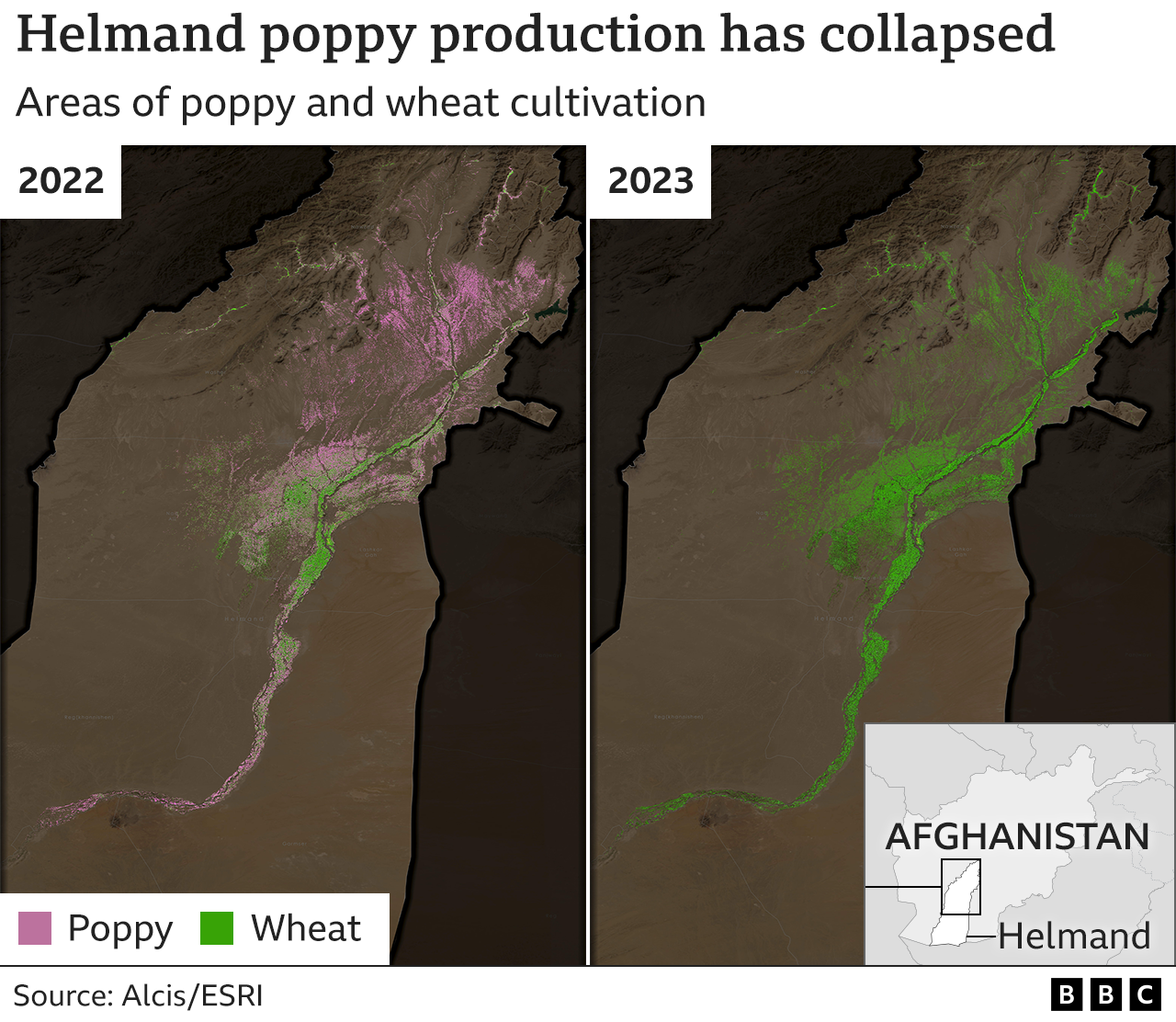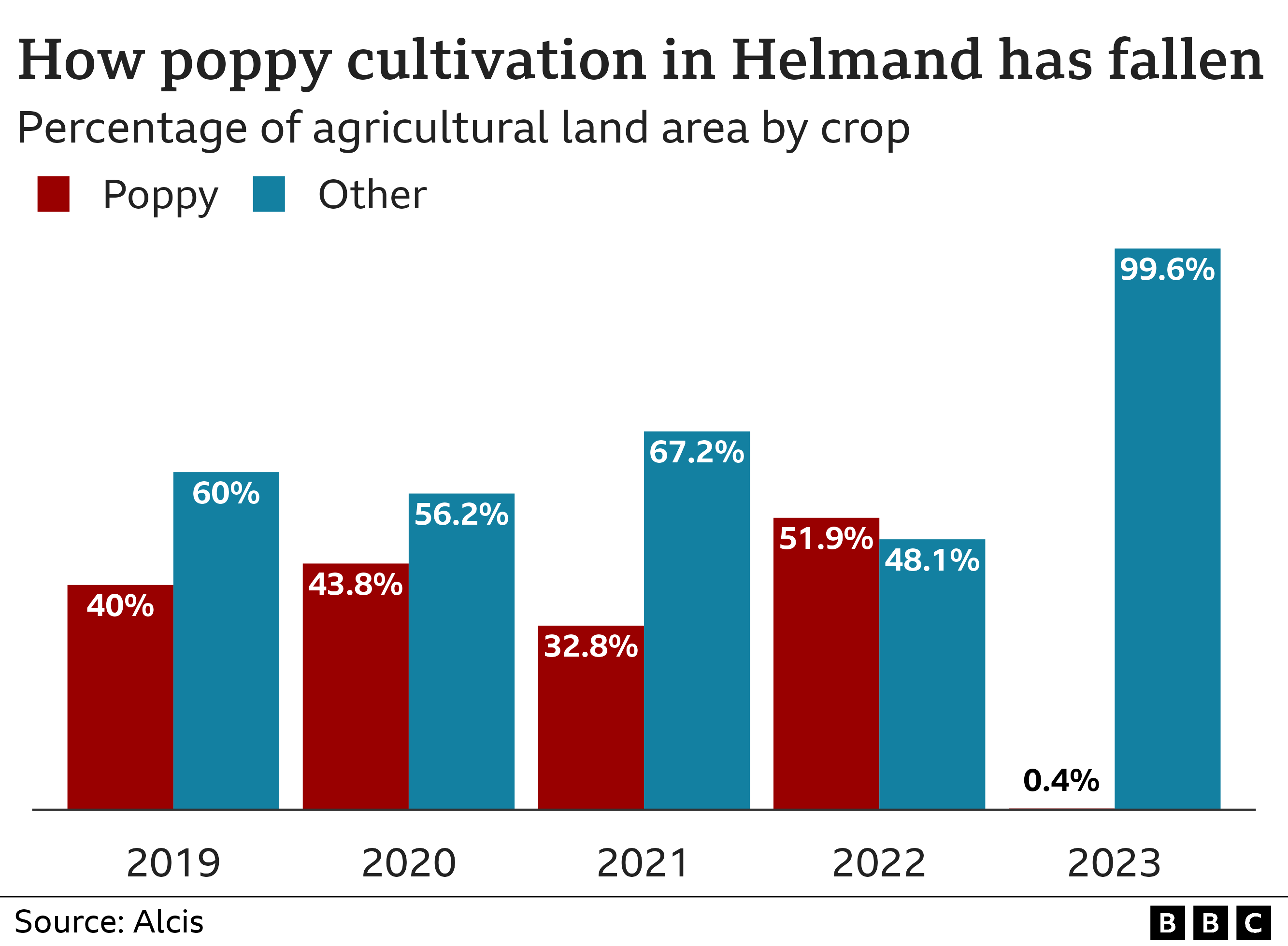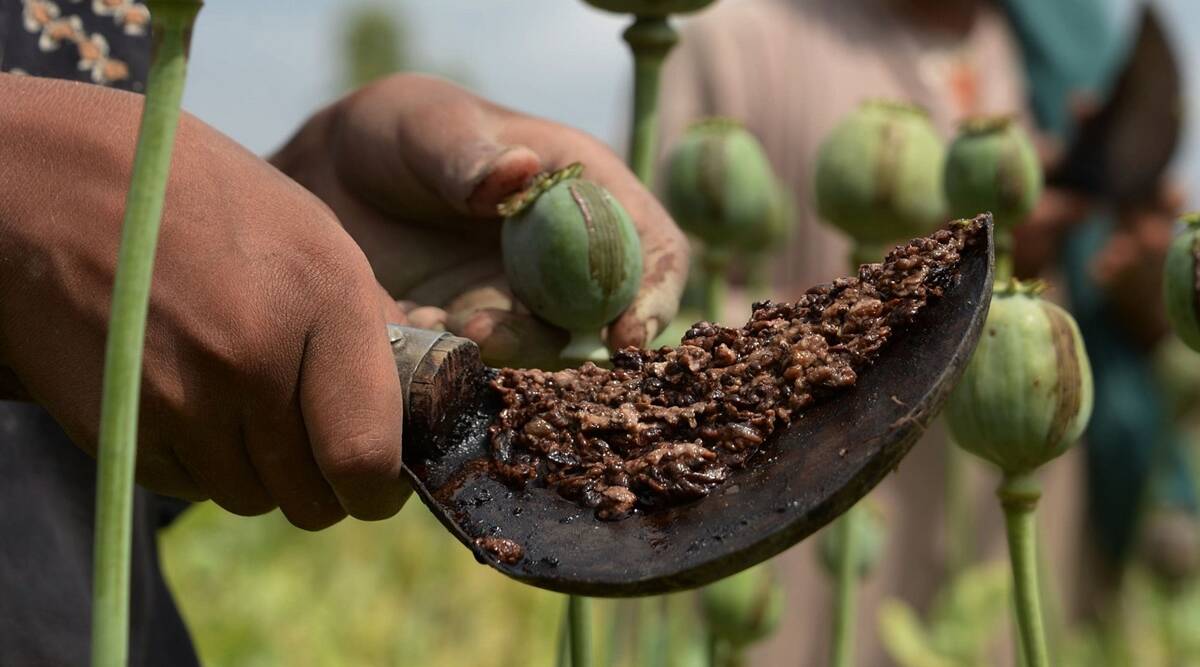Wed 07 June 2023:
The BBC reported on Tuesday that an investigation by the media outlet has found a marked decrease in poppy cultivation across Afghanistan this year.
The BBC reported that it traveled in Afghanistan – and used satellite analysis – to examine the effects of a decree issued in April 2022 by the Taliban supreme leader Hibatullah Akhundzada that the cultivation of poppies, from which opium, the key ingredient for the drug heroin can be extracted, was strictly prohibited.

The news outlet stated that Taliban appear to have been more successful cracking down on cultivation than anyone ever has.
“We found a huge fall in poppy growth in major opium-growing provinces, with one expert saying annual cultivation could be 80% down on last year. Less-profitable wheat crops have supplanted poppies in fields – and many farmers say they are suffering financially,” the report stated.
A Taliban spokesman told the BBC they imposed the ban because of the harmful effects of opium – which is taken from the poppy seed capsules – and because it goes against their religious beliefs. Afghanistan used to produce more than 80% of the world’s opium. Heroin made from Afghan opium makes up 95% of the market in Europe.
Provinces visited by the BBC included Nangarhar, Kandahar and Helmand. Studies of satellite images were also done.

Courtesy: BBC
“It is likely that cultivation will be less than 20% of what it was in 2022. The scale of the reduction will be unprecedented,” said David Mansfield, a leading expert on Afghanistan’s drugs trade, who is working with Alcis – a UK firm which specializes in satellite analysis.
Alcis’s analysis shows that poppy cultivation in Helmand has reduced by more than 99%. “The high resolution imagery of Helmand province shows that poppy cultivation is down to less than 1,000 hectares when it was 129,000 hectares the previous year,” said David Mansfield.

Courtesy: BBC
Zabiullah Mujahid, the Taliban spokesman, called on the international community to help Afghans who are facing losses.
“We know that people are very poor and they are suffering. But opium’s harm outweighed its benefits. Four million of our people from a population of 37 million were suffering from drug addiction. That is a big number,” he said. “As far as alternative sources of livelihood go, we want the international community to help Afghans who are facing losses.”

Zabiullah Mujahid, the Taliban spokesman.
He rejected assertions by the UN, the US and other governments that opium was a major source of income for the Taliban when they were fighting against Western forces and the previous Afghan regime.
The BBC asked how can they expect international organizations to help, when the IEA has jeopardized their operations and funding by banning women from working for all NGOs.
“The international community should not link humanitarian issues with political matters,” Mujahid replied. “Opium isn’t just harming Afghanistan, the whole world is affected by it. If the world is saved from this big evil then it is only fair that Afghan people receive help in return.”
Mike Trace – a former UNODC official – was a senior UK government drugs policy adviser when the Taliban’s first regime banned opium cultivation in 2000, a year before the US-led invasion of Afghanistan.

“That didn’t lead to a massive and immediate impact on Western prices and markets, because there is an awful lot of stockpiling by the actors along that drug-trafficking route,” he says. “That’s the nature of the market and it hasn’t fundamentally changed for the last 20 years.”
Billions of dollars were spent by the US in Afghanistan to try to eradicate opium production and trafficking, in the hope of cutting the Taliban’s source of funding.
They launched airstrikes on poppy fields in Taliban-controlled territory, burnt opium stocks and conducted raids on drug laboratories.
But opium was also grown freely in areas controlled by the US-backed former Afghan regime, something the BBC witnessed prior to the Taliban takeover in 2021.
For now, the Taliban appears to have accomplished in Afghanistan what the West couldn’t. But there are questions about how long they can sustain it.
SOURCE: INDEPENDENT PRESS AND NEWS AGENCIES
______________________________________________________________
FOLLOW INDEPENDENT PRESS:
TWITTER (CLICK HERE)
https://twitter.com/IpIndependent
FACEBOOK (CLICK HERE)
https://web.facebook.com/ipindependent
Think your friends would be interested? Share this story!





